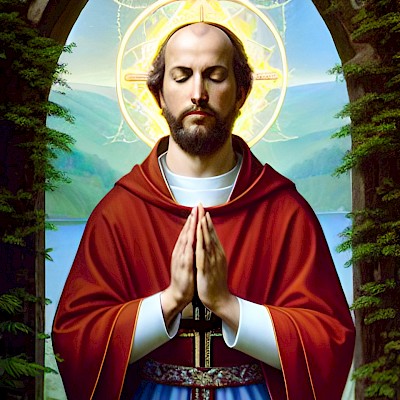Saint John of the Cross, also known as Juan de Yepes Álvarez, was a leading Spanish poet, mystic and philosopher of the 16th century. Born in 1542 in Fontiveros, Castilla, his life and work have left a deep mark on spirituality and human thought.
The Life of Saint John of the Cross
From a young age, Saint John of the Cross showed a deep interest in spiritual life and service to God. He entered the Carmelite order and met Saint Teresa of Jesus, who would become his spiritual mentor and partner in reforming the order. Together they worked to establish the foundations of the Discalced branch of the Carmelites, characterized by a deeper commitment to prayer and contemplation.
Mystical Poetry and Search for Divine Union
The poetry of Saint John of the Cross is a window into his passionate search for union with the divine. His verses explore the relationship between the soul and God, spiritual transformation, and the nature of divine love. Works such as "Spiritual Song" and "Dark Night" express his experience of mystical union and purification of the soul on its path to God.
Spiritual Philosophy and Perennial Teachings
The spiritual philosophy of San Juan de la Cruz goes beyond poetry, addressing fundamental questions about human nature and the relationship with the transcendent. His focus on purification of the soul, detachment from material things, and total surrender to God reflect his deep understanding of the spiritual quest.
Enduring Legacy
The legacy of Saint John of the Cross has transcended the centuries, inspiring generations of spiritual seekers and poets. His focus on union with the divine, contemplation and purification of the soul continues to be relevant today. His works have influenced theology, philosophy, and literature, and his message of love and dedication continues to resonate in the hearts of those who yearn for union with the divine.
Bibliography
The dates are approximate due to the age of the works.
- Spiritual Canticle (1577)
- Ascent of Mount Carmel (1585)
- Dark Night (1618)6
